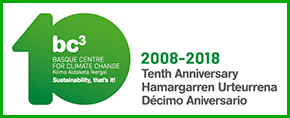
Photo: Green-warriors; three women, part of the women’s village forest committee of Dengajhari (Nayagarh district, Odisha) who patrol their community forest (Credit: Sharad Lele).
This case pertains to an interdisciplinary research project on forest ecosystem services in eastern India, specifically the state of Odisha. This state contains the three major forest governance regimes prevailing in India: state-managed protected areas prioritizing biodiversity conservation, state-managed reserve forests prioritizing timber production, and community-managed forests prioritizing local livelihood needs. A debate has raged for a long time in Indian, south Asian and indeed global tropical forestry circles about the pros and cons of centralized versus decentralized forest governance. The debate has often been infructuous because proponents of centralized forestry are only concerned with ‘global’ benefits (e.g., biodiversity) or ‘national’ benefits (e.g., timber) while those supporting decentralization prioritize ‘local livelihoods’. We carried out a multi-dimensional and multi-scale ecosystem services assessment, to compare the magnitude of major services, dis-services, their trade-offs, sustainability and distribution across stakeholders under these three different governance regimes. We found that the relationship between ecosystem conservation and poverty alleviation is neither win-win nor win-lose, but strongly condition both by the formal governance regime and its actual implementation. Of the three, community forestry may strike the best balance between local livelihoods and biodiversity conservation, but fairness and sustainability remain challenges because of internal differentiation within communities and lack of state support for protection respectively. The emergence of Forest Rights Act created space for devolution of forest management to community, but foresters and conservationists opposed. State, community and conservationists have been at loggerheads for a long time. One reason is that they make assumptions about sharp trade-offs between (say) livelihoods, conservation, carbon, water and other services, and about which is more sustainable. We wanted to throw light on this by actually comparing forests that are under state forestry (Reserve Forests) meant for logging), conservation forestry (protected areas) and community forestry (CFM groups) in terms of the multiple ecosystem services they produce, who benefits, and how sustainable the system is.
To know more:
Lakerveld, R., 2012, “Applying political ecology to ecosystem services: Operationalizing an alternative approach to ecosystem services research using an empirical case study in Odisha, India”, M.Sc. Thesis, Environmental Systems Analysis Group, Wageningen University.
Lele, S., O. Springate-Baginski, R. Lakerveld, D. Deb and P. Dash, 2013, “Ecosystem services: Origins, contributions, pitfalls and alternatives”, Conservation and Society, 11(4): 343–358.
Lakerveld, R. P., S. Lele, T. A. Crane, K. P. J. Fortuin and O. Springate-Baginski, 2015, “The social distribution of provisioning forest ecosystem services: Evidence and insights from Odisha, India”, Ecosystem Services, 14: 56-66.
Crane, T. A., M. Pronk, R. Lakerveld, V. Weiler, H. Maat, O. Springate-Baginski and H. Udo, 2016, “Research Design and the Politics of Abstraction: Unpacking the Environmentality of Scientific Practice in Socioecological Assessments”, Human Ecology, 44(6): 665-675.
Lele, S., O. Springate-Baginski, R. Lakerveld, D. Deb, P. Dash, M. Sarin, H. K. Sahu and B. Sahu, 2018, “Forest ecosystem service governance: Mediating co-production, distribution, trade-offs and sustainability in the forests of Odisha, India”, Ecology & Society, (in review).



